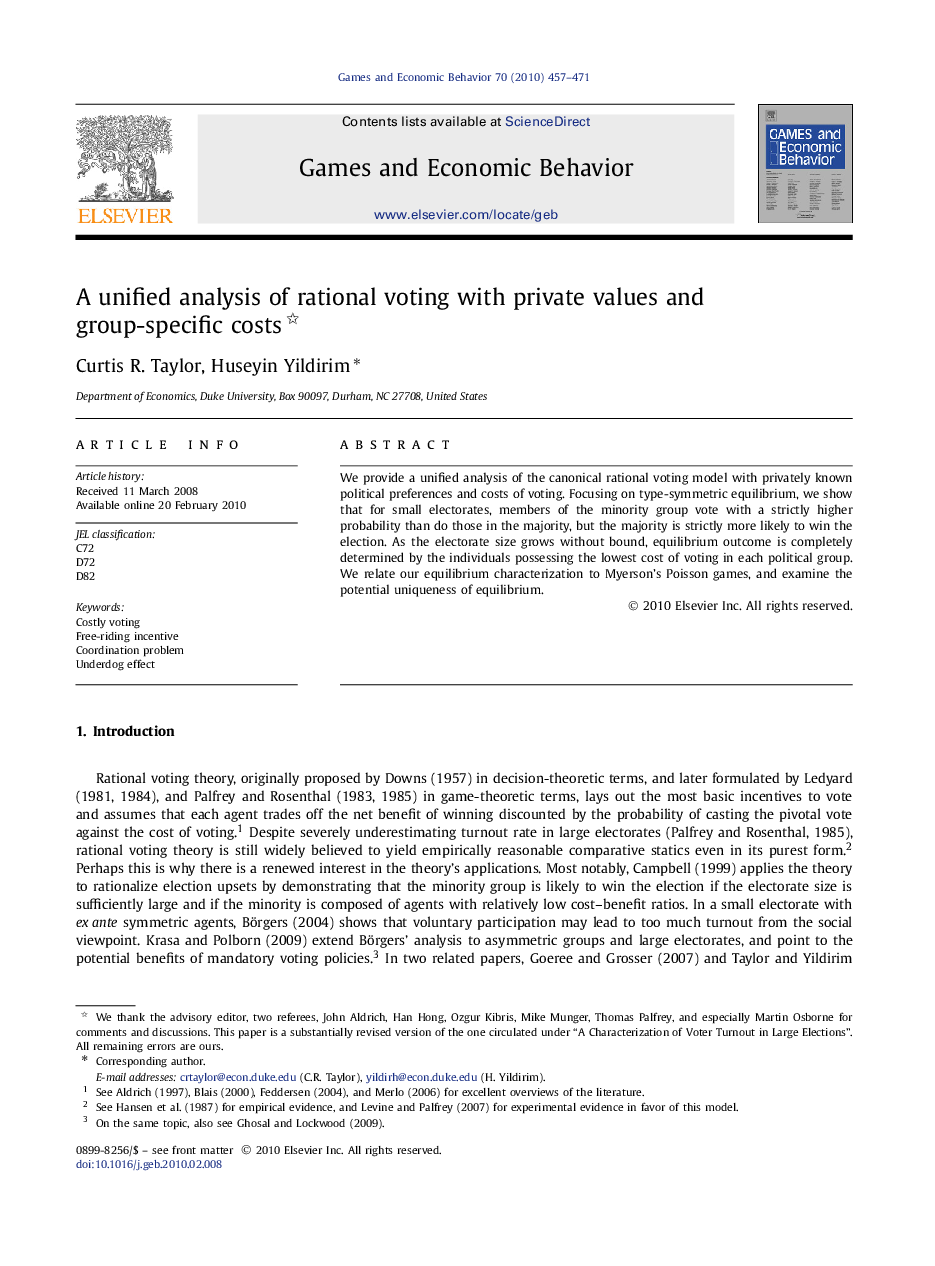| Article ID | Journal | Published Year | Pages | File Type |
|---|---|---|---|---|
| 5072332 | Games and Economic Behavior | 2010 | 15 Pages |
Abstract
We provide a unified analysis of the canonical rational voting model with privately known political preferences and costs of voting. Focusing on type-symmetric equilibrium, we show that for small electorates, members of the minority group vote with a strictly higher probability than do those in the majority, but the majority is strictly more likely to win the election. As the electorate size grows without bound, equilibrium outcome is completely determined by the individuals possessing the lowest cost of voting in each political group. We relate our equilibrium characterization to Myerson's Poisson games, and examine the potential uniqueness of equilibrium.
Related Topics
Social Sciences and Humanities
Economics, Econometrics and Finance
Economics and Econometrics
Authors
Curtis R. Taylor, Huseyin Yildirim,
